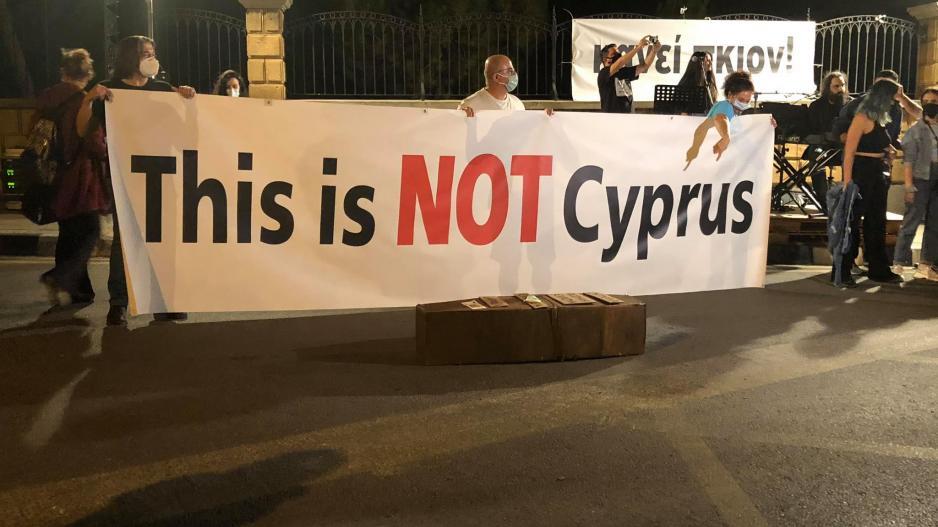Next week, the President will meet party leaders on a one-to-one basis as he tries to reinvent a government stained by the golden passports corruption fiasco.
With billions of EU funds swishing around, the government needs the Opposition to support its reform agenda in parliament.
You know, the one that will digitally transform us into a green economy with a swift justice regime and a productive education system.
These are all issues that should have been tackled yesterday, but seeing as someone else is paying for it, we might as well grab the cash.
In charge of a deeply unpopular government, although parliament is a close second, President Anastasiades wants to ride into the sunset, having restored trust in public institutions.
To do this, he is planning a Cabinet reshuffle to remove some of the deadwood (with a generous pension) and appoint new faces to make the government more appealing.
Nevertheless, the public is not just tired of the government; it is deeply suspicious of the political system.
Apathy is the biggest threat to the establishment; replacing a few faces at the Cabinet table is unlikely to convince public opinion that anything has changed.
The Opposition is hardly packed with young, dynamic visionaries prepared to drag the country into the 21st century of equal opportunities and cultural diversity.
Anastasiades will get consensus on the reforms where there is money to be made by vested interests, where change is purely for public benefit, it won’t happen without favours being granted.
There is a palpable desire for the country to turn a new page and the election of the first female Speaker of the House is a nod in that direction.
Are there alternative leaders mounted on horseback ready to drag Cyprus out of its corruption fog and male-dominated cronyism?
New dawn
While Cyprus heralded a new dawn with the election of the first woman in the second-highest office in the land, Brussels was threatening legal action over the passports debacle.
This week, the European Commission stepped up legal action against Cyprus over its cash-for-passports scheme that could see it fined by an EU court.
The EU executive launched the first step of the legal process last October when it sent a letter of formal notice to Nicosia.
Guess what? The government didn’t respond.
Brussels then dispatched (it’s as exciting as it gets) a reasoned opinion to Cyprus for failing to address its concerns.
It is unhappy that passport applications, submitted before the scheme was scrapped, are being processed.
Nicosia told the EU to keep its shirt on, promising to reply within the deadline given.
Certainly, not the best advert for Cyprus’ new-look credentials as a place where investors can do business.
The hard rap on the knuckles from the bloc came only days after an inquiry said the government unlawfully issued passports to relatives of wealthy investors despite warnings by the Attorney-General.
Of the 6,779 passports issued during the scheme’s 13-year run, 53% were issued illegally to family members or top company executives.
The Attorney-General had warned on separate occasions in 2015 and 2016 that the practice might be unlawful because there was no law enabling the government to facilitate such passports.
Of those granted to rich investors, one-third failed to meet the criteria.
It seems the government wasn’t too bothered about bending the rules while it was counting the cash, along with the other enablers (accountants, politicians, lawyers, developers).
In a nutshell, the scheme operated between 2007-2020 with “gaps and omissions, no legal framework and almost without a regulatory framework”.
The programme was only scrapped last November after an Al Jazeera sting operation caught the then parliamentary Speaker and an AKEL MP claiming that they could circumvent the rules for criminals.
Golden passports were ramped up under the Anastasiades regime after the near economic meltdown in 2013.
Nobody was asking too many questions because Cyprus was in a bad place and needed the cash.
But there were warning signs and alarm bells ringing, but the government just rolled over and turned the noise off.
Cyprus seemed to forget it was one of the few countries in the bloc selling passports, a fact that would only draw attention to itself.
As usual, the normal response was to blame jealous competitors and pretend everything was above board.
Ironically, the government said there would be no cover-up, and those found responsible would be punished. Really?
So, who was in charge of this circus?
Surely, not the ministers and officials who were running the investment scheme.
We will have some trust issues with the EU for some time to come, but nobody’s talking about the elephant in the room.










